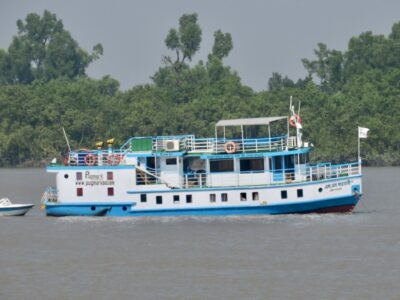
Last week, Earth Institute Executive Director Steven Cohen traveled to Beijing to formalize a partnership with the China Center for International Economic Exchanges (CCIEE), the preeminent think tank in China. The partnership, between CCIEE and the Research Program on Sustainability Policy and Management, aims to design a Chinese sustainability metrics framework based on China’s unique economic development conditions.
Led by Zeng Peiyan, the former vice premier of China, CCIEE promotes international economic research and discourse, and is especially influential in the central Chinese government. The center, staffed by ministry directors and former directors, ensures that its research is not only guided by key policy challenges facing the country, but also that its results are adopted widely through relevant avenues and agencies.

“CCIEE is a unique organization, unlike any that we have here in the U.S.,” Cohen said. “It is as if we combined the Office of Management and Budget, the Government Accountability Office and the Brookings Institution in a single agency. It is loaded with top analytic talent, and their influence in China will give The Earth Institute unique access to agencies and experts that will enhance the quality of our work and our ability to progress on sustainability issues in both America and China.”
The Earth Institute and Columbia University are among excellent peers in working with this critical Chinese organization. CCIEE has previously partnered with organizations such as the Paulson Institute, the U.S. Chamber of Commerce, the World Wildlife Fund and the Harvard Business School on topics ranging from green economy indicators to China-U.S. investment. The partnership comes with enthusiastic support of Provost John Coatsworth, who recognizes the importance of advancing sustainability in China and the excellent opportunity to leverage both organizations’ strengths and expertise to work towards a more sustainable global economy.
The importance of this partnership lies in the need for a standardized methodology to organize the vastly increasing amount of information on sustainability in a way that enhances organizational and local-level management and improves sustainability performance. Although the Chinese government has worked to establish a sustainable strategy for its development, the sheer pace of China’s economic growth makes it a difficult task, and a standardized system to measure and manage sustainability is needed in order to seriously assess progress.

In Beijing, CCIEE and Columbia signed a memorandum of understanding to explore this important work. CCIEE and The Earth Institute will work together to review existing sustainability frameworks in China, leveraging the academic expertise of The Earth Institute and the research capability of CCIEE in the development of a new conceptual framework, as well as designing and evaluating a pilot implementation of the new sustainability framework.
The partnership with CCIEE will complement and leverage past and ongoing work in this field by The Earth Institute, which began research on organizational-level sustainability metrics in the fall of 2013. It will also produce applied research that can contribute to both U.S. and Chinese decision-making in sustainability policy, and, in turn, could facilitate the development of renewable resource-based economies in China, the U.S. and around the world.
While in China for the formal ceremony solidifying the partnership, Cohen also shared lessons on how the U.S. has overcome obstacles in achieving a growing economy in conjunction with a cleaner environment—a critical issue facing China today—during an interview with CCTV News, an English-language news station based in Beijing. Cohen also talked about the importance of environmental policy in achieving a sustainable society in a public lecture given at the Columbia Global Centers | East Asia, which has been an important partner for the Research Program on Sustainability Policy and Management as it expands its research into China.



